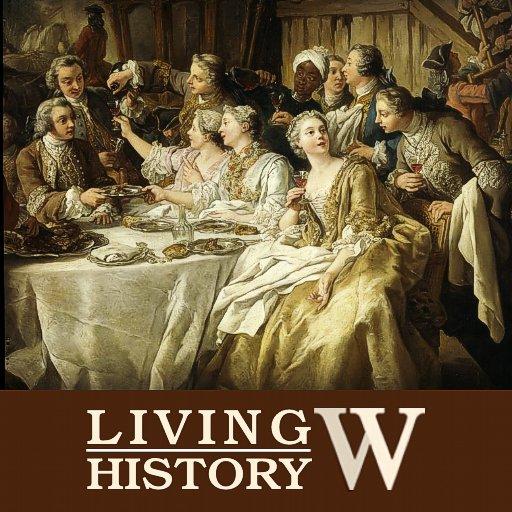30th March 2013, Versailles in SL
The community of Versailles in SL has come a long way in the last 4 years since its foundation back in 2009. It has set a new standard of roleplay and invented its own style of interaction. However, we have always come to a point where reforms and passionating ideas were required. A project that does not evolve will slowly fade away. Following the roleplay reform set into motion in 2012 with a big stress on our educational objective we shall now focus on our roleplay.
Active roleplayers have often lamented a lack of action, activity and spontaneity among the roleplayers of our community. It has taken us a long time to understand how things could be improved: Through education and training. However, even the best roleplay training is worthless without the necessary inspiration and incentive. The key word of this reform shall be INCENTIVE - our shall be to inspire, encourage, motivate roleplayers to participate in the STORY of Versailles by giving them orientation.
1: A text-based roleplay - THE PLOT
(1) Over the last 4 years roleplayers at Versailles have developed a special style of roleplay: Its fast pace and lack of textual complexity have allowed fast interaction required at a court that is based on intrigues as well as witty and animated dialogs rather than long text passages focusing on the individual roleplayer.
(2) The idea is to introduce a BASIC PLOT written and developed by a board of writers that shall be released / updated every month. This plot shall summarize the events that have taken place at court in the last month. At the same time it the board of writers shall continue the story by introducing one or more story lines for the coming month. It is then up to the roleplayers in the community to react to these new story lines that are a logical result of actions having taken place in the past. Depending on what the roleplayers make of it (through interaction, gossip [see below]) the plot shall be adapted in the ensuing month.
Ex.: The announcement of coming events, marriages, promotions, the arrival of bad news from abroad, new courtiers, the revelation of intrigues, change in national politics
(3) The plot and sub-plots shall be written from the perspective from a 3rd person limited narrator (without omniscience) that reflects on the events at court, personal relations between courtiers and important developments in society.
(4) The plot can also refer to fictional characters that do not necessarily need to exist in reality in order to introduce new story lines and enrich / extend the existing storylines.
5) The basic structure could be the following:
Intro (written by the creative board) - plot enacted by the community in reaction to the intro - conclusion (written by the creative board at the end of the month) + intro for month 2 [...]
2: Court gossip - a tool controlled by the court factions
(1) The gossip guide is currently being monitored and managed by the council of Versailles. In order to give court factions and families a way to deceive / influence the public opinion as well as in order to revive this roleplay tool house leaders and core roleplayers should be allowed to send notices to the group.
(2) The gossip should adhere to our guidelines and rules and shall be monitored by the roleplay manager (MarieLouise Harcourt)
(3) Members using the gossip guide in an abusive manner shall be removed by the roleplay manager.
(4) The gossip must refer to actions having taken place in roleplay, there needs to be some sort of evidence or at least some hint that the gossip might indeed correspond to the truth. Anything else would not be constructive
Ex.: There cannot be any gossip about an amorous affair without any indication or form of evidence in roleplay whatsoever.
3 Royal favour: A more realistic approach
(1) The royal favour chart shall be abolished as it has proven to be an unrealistic approach.
(2) In reality whether a courtier was held in esteem by the royals was expressed by other means - such as gifts, offices and titles.
(3) Whether a courtier has won the king's favour could also be reflected in the PLOT. That would also minimize the need of an active king in the roleplay who would instead interact as some kind of "inapproachable" god like player in the plot.
(4) This new system would require the cooperation of the royals. They would have to strictly observe the plot and make their choices based on who they want to "protger" in other words whose career they want to promote. Court factions do play a very important role in this context [see below]
4: Court factions
During the latter part of the reign of Louis XV, the court had divided into two opposing factions, with very different political views.
(1) Parti Devot
This was a group of conservative courtiers, headed by Madame Royale. They believed in the divine right of absolute monarchy and were opposed to the Parliament and ideals of the enlightenment. Their main goal was the preservation of the Catholic Church's important place within French culture and society. They were also against the Franco-Austrian alliance and viewed Austria as the enemy who they fought in the War of Austrian Succession, and who later dragged them into the disastrous Seven Years' War against Great Britain and Prussia.
(2) Choiseullistes
This was the group of more liberal courtiers who were enamoured by the ideals of the enlightenment. They believed in a more constitutional idealistic form of government and were pro-parliamentary. They were also pro-Austrian, a prominent member being the Dauphine Marie Antoinette, who stood as the main supporter of the exiled Duc de Choiseul, who had formed the Austrian alliance instrumental in fabricating her marriage agreement.
(3) Du Barryistes
After the arrival of Madame du Barry at court, a third faction began to grow up around her, supported by the Devot Duc d'Aguillon who hoped she would assist him in acquiring the favour of the King. He formed part of the triumvirate of ministers who formed a government during the last years of Louis XV's reign, along with the Abbe Terray and Chancelier Maupeou. They were very unpopular with the majority of court but held considerable influence with the help of Madame du Barry.
(4) Courtiers sided with various factions depending on their own ambitions and their personal beliefs. Many turned to Du Barry to secure favour from the current king, but found that they alienated themselves from the Dauphine and Madame Royale in doing so, who both had a joint influence on the new King Louis XVI.
(5) After the death of the King, the Parti Devot and the Choiseullistes struggled for political dominance, headed by the King's aunt Madame Royale on one side, and the Queen on the other. Rivalries became bitter, and those who wished to be in the favour of the Queen, would be bitterly resented by Madame Royale, and vice versa. Thus courtiers had to carefully choose based on their own beliefs which faction they wished to belong in.
updated by @anne-comtesse-de-noailles: 23 Oct 2016 12:12:24AM




 Just a small thing to add to your comment Constance - Germaine Necker was official presented to their majesties in the 1780s, before she married. So even that was possible =]
Just a small thing to add to your comment Constance - Germaine Necker was official presented to their majesties in the 1780s, before she married. So even that was possible =]